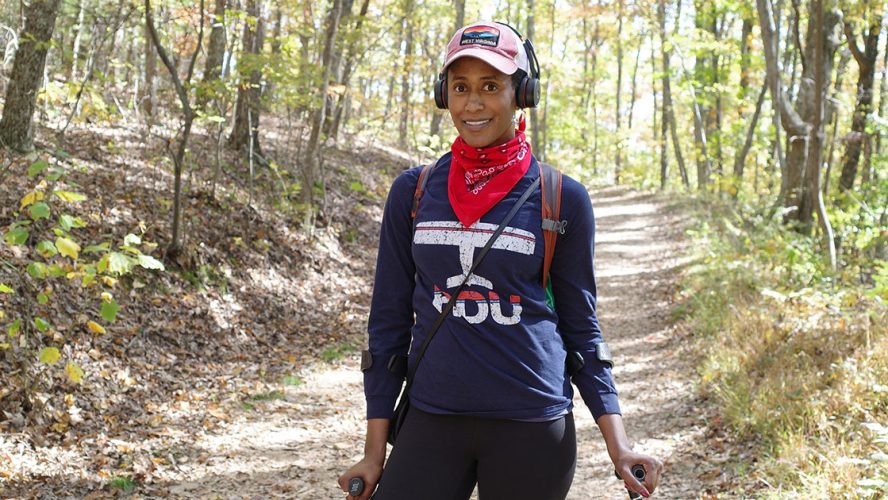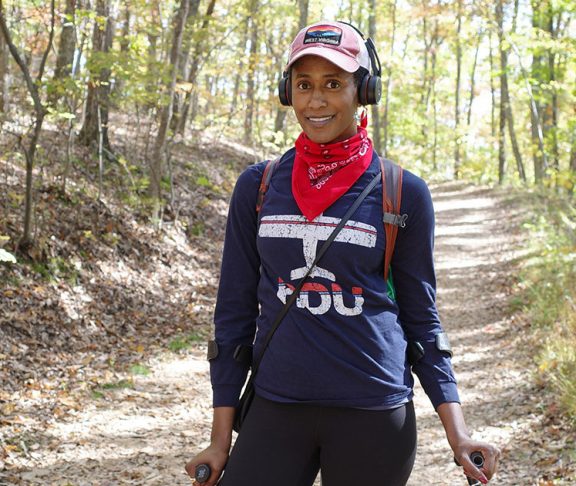Troubled by the lack of BIPOC representation in outdoor sports, Danielle Williams founded the Melanin Base Camp.
Growing up, Danielle Williams and her family spent a lot of time outdoors, including running and biking. Then, she spent over 10 years in the Army, where she enjoyed hiking and jumping out of airplanes.
“As a civilian, I got into skydiving, which was a lot of fun and became my outdoor community,” says Williams, a Black woman, who has a disability and uses mobility aids to walk.
In 2016, when she logged into Instagram looking “to connect with other people like me,” there were no groups or shared hashtags for people of color who enjoyed outdoor adventure sports. She kept scrolling until she found people to connect with.
Looking for community
Initially, she thought people of color weren’t outdoorsy but after research, she realized BIPOC are active, including surfing, hiking, kayaking, climbing, skydiving, and more. The problem was she never saw adventure athletes of color in media.
“Looking for a community and not being able to find it at the time was just a little bit frustrating,” she says. “So, if it’s not there, do your best to build it.”

That’s how Williams, now 34, founded Melanin Base Camp, an outdoor diversity blog that also makes short films, in February 2016. Two years later, she launched Diversify Outdoors, a digital media company that’s a coalition of outdoor entrepreneurs, activists, nonprofits, athletes, and bloggers connected through the outdoor diversity, equity, and inclusion space.
“Our mission is to create a space for honest conversations about race and gender, sexuality, and disability in the outdoors,” she says.
Do the work
She says there’s no easy answer to a very complex situation but there is a need to get away from the outdoor industry’s search for simple solutions.
She’s calling on outdoor companies to do the work and ask themselves how they can meet the needs of the community.
“How can we invest in these communities of historically marginalized people that we report to care about?” she asks. “Instead of reaching for the easy buttons, I think it is important to be willing to learn, to do a lot of unlearning, to actually do the work, and to listen to people who have the experience, who have been doing this work at the grassroots level for a long time.”
Her advice to the industry? “Don’t be afraid to work with diverse people.”

